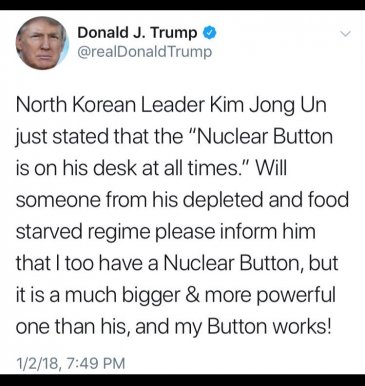By Annick Wibben
Many Security Studies scholars still query the usefulness of feminist approaches to security. Or rather, they quite simply ignore the significant contributions made by Feminist Security Studies scholars [see e.g. Stern & Wibben 2015]. Sometimes this means that they miss, or are puzzled by, observations such as the finding that women might be supportive of hawkish foreign policy approaches that a feminist scholar might quite easily explain (much scholarship examining the women = peace thesis has found it to be problematic at minimum; see e.g. Aharoni, 2017). Other times it leads to scholars posing seemingly new questions or proposing approaches (such as those focusing on the everyday or vernacular security) that have long been a key feature of feminist work.
The Security Dialogue special issue on ‘Militarism and Security: possibilities, dialogue and limits’ does not make this mistake. Indeed, the call for papers specifically noted that while mainstream and critical security studies scholars tended to pay little attention to militarism since the end of the Cold War, “many scholars, such as feminists and political geographers, never abandoned militarism or militarisation and continue to produce some of the most innovative work.” Arguably, feminist scholars have traditionally had more to say about militarism/ militarization, than about security – an area of research that only started to get more attention in the 1990s when J. Ann Tickner’s Gender in International Relations: Feminist Perspective on Achieving Global Security and Betty A. Reardon’s Women and Peace: Feminist Visions of Global Security were published (I point to some of the reasons in my contribution to the special issue).
Given this context, my article specifically explores how feminist scholars have thought the concepts of security and militarism together – as militarized security, on the one hand, and everyday (in)security, on the other hand.
“Rather than thinking of militarism and security as distinct, critical feminist scholarship has consistently maintained that we cannot think of security without thinking about the militarist logics that are deeply embedded in it, not least when we continue to examine militarist state practices that dominate our present-day understandings of security, even in its critical variants” (Wibben 2018, 144).
Most importantly, feminist scholarship is explicitly guided by an interest in gender, which in the case of militarized security often implies a focus on (hegemonic) masculinities. Looking at shared gender norms governing the conduct of men as well as servicemembers generally, can help explain the difficulties of integrating women into militaries – as well as the quite predictable twist and turns of debates about such a move (see e.g. MacKenzie 2015). What is more, these hierarchical gendered norms intersect with racial and sexual distinctions that affect a variety of differently-located bodies, such that men are also variously affected by these norms.

US President Donald Trump’s January 2018 tweet comparing the size and power of his “Nuclear Button” to that of DPRK Leader Kim Jong Un’s
Anchoring the paper in an engagement with debates about lifting the combat exclusion for women in the U.S. military, I find that while the move is long overdue, the integration of women into state militaries is not purely a case for celebration and the variability of gendered norms complicates the picture. For example, while (white, heterosexual) men have traditionally been more able to claim military masculinity (in the U.S.) – some women and LGBT service members have also harnessed it, particularly in the recent debates about their full integration/ ability to serve openly as Aaron Belkin (e.g. 2012) has pointed out also. What is more, since gender norms rely on broad societal support, feminists have also researched the variety of ways in which everyday experiences of militarism shape the lives of those living in highly militarized societies such as the U.S. (e.g. Enloe 2000), also affecting their perceptions of security. Feminist scholarship has exposed how appeals to security are often couched in the language of protection, replete with gendered myths of women at the home front and men at the frontlines, even when women have long served on the frontlines and men on the homefront accept militarist logics also.
As current international politics show, whether the puzzle of what to make of women in various fighting forces, the leadership by women in states embracing genocidal policies, or the nuclear stalemate between the U.S. and North Korea, security studies scholars ignore feminist insights at their own peril. As Carol Cohn noted in her recent New York Times Opinion Editorial, “this is not about individual men or women. Ideas about masculinity and femininity already distort the ways we think about international politics and national security. And they matter.” It would indeed behoove security and military studies scholars to take feminist work seriously.